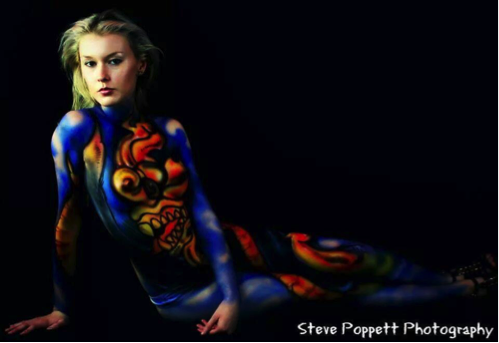In conversation with Steve Poppet
- Emma Navarro
- Feb 23, 2016
- 3 min read

On my search for a local photographer I was introduced to Steve Poppet. Starting his career in Sydney at 19, Steve has had an exciting career beginning with NRL games, then major surfing events, weddings, families and much more. Now a freelance photographer on the Gold Coast, Steve is an old hand at all things photography. I talked to him about his experience with the industry, developing in the dark room and comparing it to the digital world
What was your first camera? The first camera I had was a little Kodak Instamatic as a kid about 30 years ago. First professional camera I bought was second hand it was a Canon A1 one of the first cameras with an interchangeable lens.
Where did you learn photography? Spent 2 nights a week in my last year of school at tafe.
What were some of the things you needed to learn? We learnt about film processing and developing, compositions and apertures’, we were taught all the need to know basics about photography. We learnt about cameras and the settings, I never use automatic, it was very invaluable to learn how to take a picture in the dark without a flash.
I asked Steve to talk about some of his experiences with film. Going down to the beach to photograph a surfing event. I would turn up with my tripod, my camera and a bag, like a back pack full of maybe 30 rolls of film, I also had this fancy jacket that I liked to use sometimes, I could store a lot of rolls of film in it. It was fast paced and hard work I could take 500 photos and get 1 good one, there was always a lot of wastage. I would look at all these professionals with thousands of dollars’ worth of equipment just clicking, clicking clicking. Film was so expensive that I wasn’t able to do that I would sit, wait and watch until I thought I saw a good shot. I really enjoyed that.
Was working in the darkroom fun? Developing my own pictures was fun it was hard work and there was an art to it, an art that not everyone is able to do. The art of over exposing or under exposing, playing around trying to get that perfect picture. When you see your picture slowly appearing from a blank piece of paper was magical.
How do you look at film photography and would you ever go back to it? Depending on the career choice, for any fast photography like sports, wedding photography, families digital is the better choice for convenience, more cost effective there is no wastage, just a delete button. But if you choose it as an art, film is a good way to go…and yes I would love to work with film again. If I was too, I would love to do some sunrise or landscape shots.
I was lucky enough to see the man at work one day sitting in on a shoot he did for a domestic violence campaign. Steve found this to be a great idea, he found himself campaigning for a cause he felt strongly about as well as working with some talented models and make-up artists.
Tell me about some of your experiences in sport photography? Sports photography is big money, you have to know what you’re doing. Surfing was a tough gig, to get some good photos you needed the gear for it. The NRL games were fun as long as you could run up and down the field with your equipment you could get a photo. So I would spend my weekends taking photos then come Monday Tuesday, Wednesday time to develop, always a lot of wastage, but it was worth it. My aim was to get that one good photo to make it to the paper. One of my photos even made into the NRL’s Big League Magazine.
What was your interest in taking photos for a footy game? The raw emotion you capture on players faces.
Freelancing his way through life with an exciting career, he has changed his path a little. Now a family man he has his own studio set up at home. Photography, for Steve now is a little more part time, but he does some exciting work. Doing the occasional glamour shot, wedding or family portraits he also works with local artists. One such artist, Paul, creates body art using airbrushes.
Steve shows such passion with his work and one day wants to fullfill a desire to travel and photograph. To take pictures of the world, taking pictures of people living their lives amongst each other. He is on the search for raw photography, a word I heard him use many times when describing some his work.






























Comments